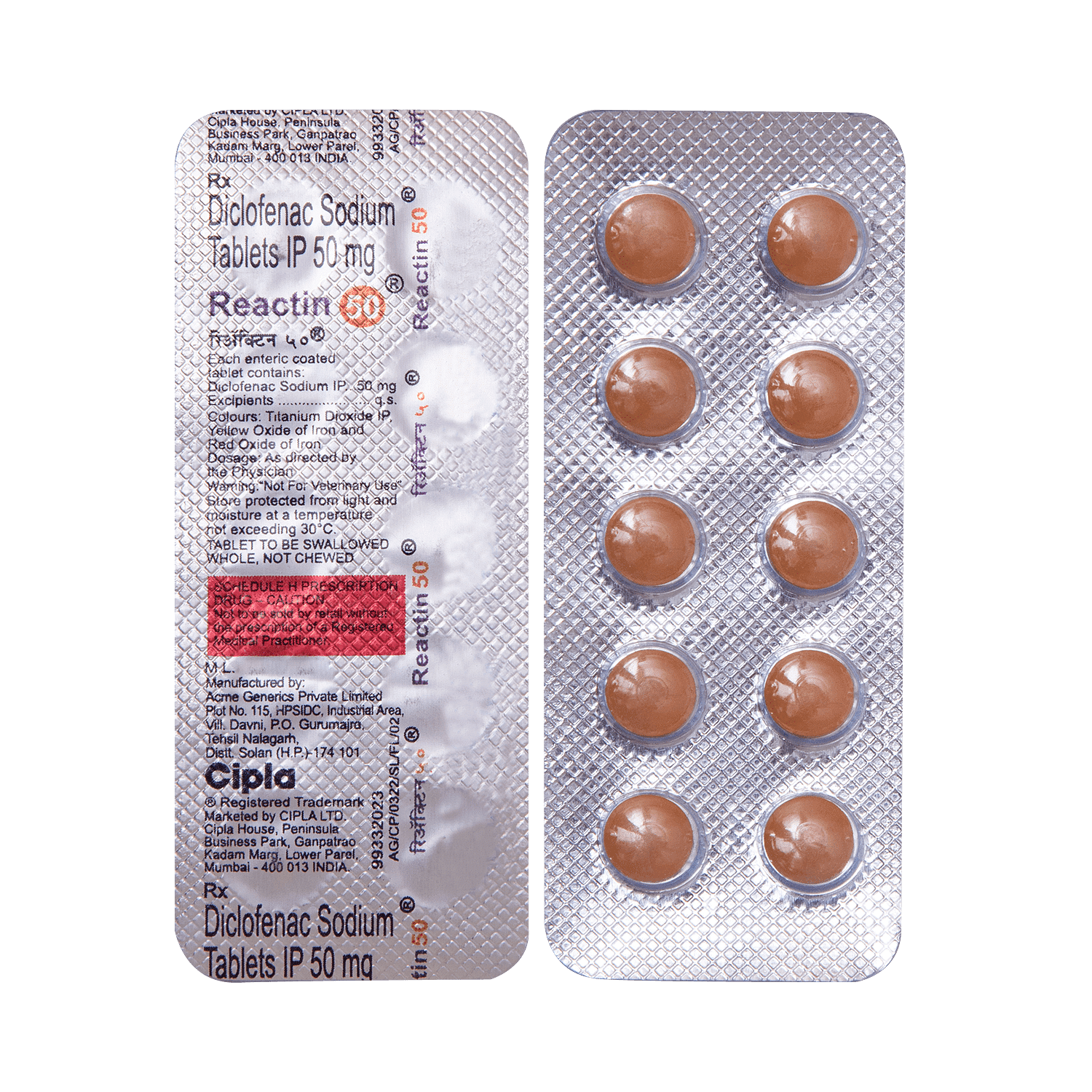
Diclofam 50mg Tablet
Manufacturer
Max Life Science
Salt Composition
Diclofenac (50mg)
Key Information
Short Description
Diclofam 50mg Tablet is a pain-relieving medicine used to treat pain, swelling, stiffness, and joint pain in conditions like rheumatoid arthritis, osteoarthritis, and acute musculoskeletal injuries.
Dosage Form
Tablet
Introduction
Diclofam 50mg Tablet is a non-steroidal anti-inflammatory drug (NSAID) used to relieve pain and inflammation. It is commonly used in back pain, shoulder pain, neck pain, sprains, and spasms.
Directions for Use
Take this medicine in the dose and duration as advised by your doctor. Swallow it as a whole. Do not chew, crush, or break it. Diclofam 50mg Tablet is to be taken with food.
How it works
Diclofam 50mg Tablet is a non-steroidal anti-inflammatory drug (NSAID) that works by blocking the release of certain chemical messengers that cause pain and inflammation.
Quick Tips
Take it with food or milk to prevent upset stomach. Take it as per the dose and duration prescribed by your doctor. It may cause dizziness, drowsiness, or visual disturbances. Avoid consuming alcohol while taking Diclofam 50mg Tablet. Inform your doctor if you have a history of heart disease or stroke.
Related Medicines

Reactin 50 Tablet

Haloran 50mg Tablet

Dofec 50mg Tablet

Knac 50mg Tablet

Avilonac 50mg Tablet

Jonac 50mg Tablet

Volyarv 50mg Tablet

Vovo 50 Tablet

Artilov 50mg Tablet

Diloxyn 50mg Tablet
Frequently asked questions
Is diclofenac a good pain reliever?
Diclofenac is effective in relieving pain and inflammation. It is used for various sorts of pain such as sprains, strains, and other injuries. It is also helpful in various types of arthritis, gout, pain, and inflammation following surgery.
Is diclofenac a narcotic?
No, diclofenac is not a narcotic. It belongs to the non-steroidal anti-inflammatory drugs (NSAIDs) group of medicines.
Can diclofenac get you high?
No, diclofenac does not get you high. It does not have an abuse potential and does not cause physical or psychological dependence. However, if you do not feel well, consult your doctor.
Can long-term use of diclofenac damage my kidneys?
Long-term use and high doses of diclofenac may cause renal problems such as protein or blood in urine and painful urination. Patients who are at maximum risk of developing kidney problems include people who are dehydrated, have heart failure, impaired kidney function, hypertension, elderly, who are on medicines which cause excess urination (diuretics), or medicines which have a significant impact on kidney function. Hence, for such patients, kidney function monitoring is recommended.
Does diclofenac make you drowsy?
Diclofenac can cause drowsiness and also dizziness, fatigue, and visual disturbances. However, it is not very common and may not affect everyone. If you experience these symptoms avoid driving or operating heavy machinery.
What are the most important things I need to know about diclofenac?
It is essential to know that diclofenac may increase your chance of having a heart attack or stroke. The risk is more if you take higher doses and have been using the medicine for a longer time. Also, taking diclofenac may cause ulcers, bleeding, or holes in your stomach and intestine. These problems may happen without warning symptoms at any time during treatment and may even cause death. Therefore, if you encounter any such problems, consult your doctor immediately.
Can I take diclofenac during pregnancy?
You should not take diclofenac during the last 3 months of pregnancy as it may cause harmful effects on your baby. Use of diclofenac can also lead to reduced labor (premature delivery). Hence, it is advised to avoid using diclofenac during the first 6 months of pregnancy also. In some cases, diclofenac may be prescribed in pregnant women only if the benefits outweigh the risks involved with its use in pregnant women. If unsure, consult your doctor regarding its use.


